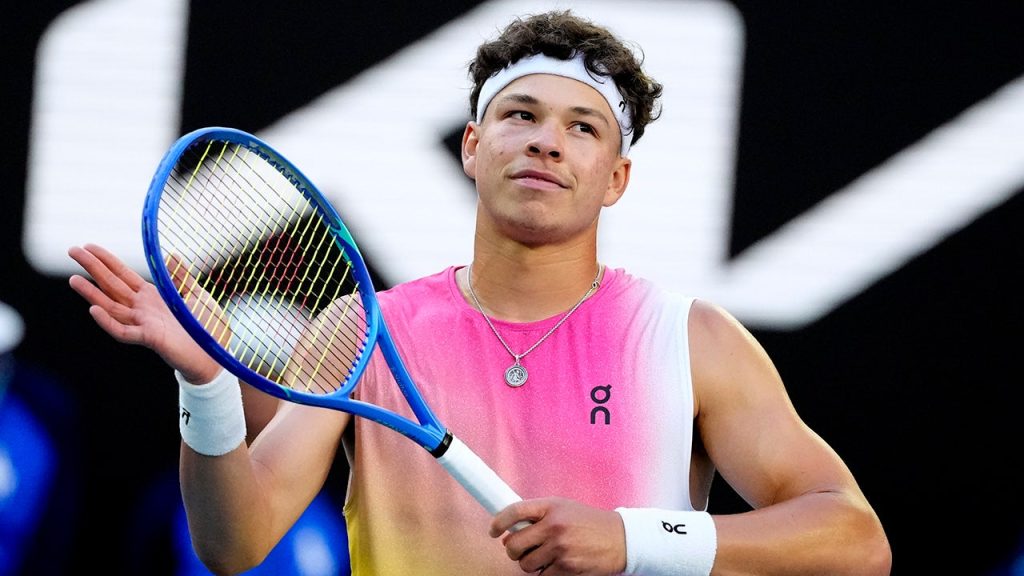The 2023 Australian Open witnessed a rising tide of concern over the conduct of on-court and post-match interviews, culminating in American tennis star Ben Shelton’s public criticism of what he perceived as disrespectful and negative questioning by broadcasters. This controversy brought into sharp focus the delicate balance between entertaining audiences and maintaining a respectful environment for athletes, particularly during high-pressure moments of significant achievement.
Shelton’s remarks, delivered unprompted at the end of his quarterfinal press conference, stemmed from a series of perceived slights directed at various players throughout the tournament. He specifically referenced an incident involving Novak Djokovic, where a broadcaster, Tony Jones, made disparaging remarks about the Serbian tennis star and his fan base, labeling Djokovic “overrated” and “a has-been.” This incident led to Djokovic refusing an on-court interview until he received an apology from the network. Shelton expressed his belief that this incident wasn’t isolated and that a pattern of disrespectful questioning was emerging.
Shelton cited personal experiences to support his claims. After his fourth-round victory over Gael Monfils, interviewer Roger Rasheed made a comment about the significant age difference between the two players, stating that Monfils was “almost your dad.” Since both players are Black, Shelton questioned whether the remark was a racially charged “Black joke,” to which Rasheed responded with uncertainty. This exchange highlighted the potential for seemingly innocuous comments to be interpreted differently, particularly in the charged atmosphere of a major sporting event.
Further fueling Shelton’s discontent was a post-match interview following his quarterfinal victory, where the interviewer suggested that he would likely have limited fan support in his upcoming semifinal against defending champion Jannik Sinner. Shelton found this comment disrespectful, especially coming from someone he had never met. He emphasized that broadcasters should play a constructive role in promoting the sport and supporting athletes, rather than contributing to negativity.
Shelton’s criticism reflected a growing sentiment among players that certain interviewers were crossing a line in their pursuit of engaging content. The incidents raised questions about the responsibility of broadcasters to foster a positive environment for athletes, particularly during major tournaments where emotions run high. The pressure to perform at the highest level, combined with the scrutiny of media attention, can create a challenging environment for players. Insensitive or disrespectful comments from interviewers can exacerbate this pressure, potentially impacting performance and overall well-being.
The Australian Open controversy underscored a larger debate about the role of sports media. While the desire for entertaining and engaging content is understandable, it should not come at the expense of respect for the athletes. The incidents highlighted the need for greater sensitivity and awareness among broadcasters when interacting with players. The goal should be to celebrate athletic achievement and promote the sport, rather than creating controversy or generating negative headlines. The controversy also highlighted the importance of establishing clear guidelines for broadcasters to ensure that interviews remain respectful and professional.



